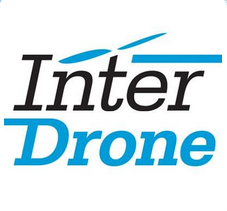Technology Conference Listing
Featured: Women in STEM Conference and Award, San Francisco, Sept 10-12, 2017
Featured: PrecisionAg Vision Conference, Phoenix, Oct 10-12, 2017
Featured: SPTechCon, SharePoint Technology Conference, Washington, DC, Nov 12-15, 2017
San Francisco Professional Events List
 Please wait...
Please wait...
Auditing Debt Collection - OAP382
Date
Link to Website
Organizer
Venue
Location
Cashflow is crucial to any business and the receivables audit is therefore a key assignment within any firm. The modern recoveries manager needs to employ the right balance between old-fashioned collection methods and automation if he is to achieve the best returns. Consequently, internal auditors need to appreciate the nature of the techniques that are applied and how they will be assessed.
This two-day course is designed to provide internal auditors with the skills they require for auditing the management and operation of the problem debt assessment and recovery system. Emphasis will be placed on practical and theoretical, with numerous examples and case studies presented throughout the course. In-depth discussions among delegates will be facilitated so that attendees may pool their experiences and learn from both mistakes and successes.
Course delegates will obtain a full, detailed and, above all, practical appreciation of the challenges facing the “problem loan” team and will be able to design audit approaches suitable for the audit of:
-
Debt strategies, planning and procedures
-
Use of standard and customized letters and approaches
-
Reporting and management
Prerequisite: Fundamentals of Internal Auditing (OAG101) or have equivalent experience. Some knowledge of bank lending and debt recovery systems would be an advantage but is not essential.
Advance Preparation: None
Learning Level: Intermediate
Field: Auditing
Delivery Method: Group-Live
Who Should Attend
Internal and External Auditors; Risk and Compliance Managers; IT Auditors who require a comprehensive approach to operational audits of core business functions
CPEs: 16
INSTRUCTOR: Dennis Cox
LEVEL: Intermediate
Tuition : $2,095
Agenda
What you will learn:
1. Auditing Debt Governance
• what is the role of the board?
• why is it important?
• what does the board need to know?
• what information do they want vs. what do they get?
• what is the role of the audit committee?
• how can this be linked to other risk management techniques applied to by the business?
Case Study: Develop an audit program for the audit of debt governance
Case Study: Develop an audit program for the audit of debt reporting
2. Auditing Debt Recovery Strategy
• how are policies developed?
• what are the controls to ensure that they are implemented efficiently and effectively?
• when is collection the only answer?
• how does this differ between corporate and retail debt?
• what is the continuing role of the relationship manager?
• should they be involved?
• what is the role of the instigating department?
• how does collections relate to the credit department?
• how should it be managed?
• what is the role of the legal function?
• who else needs to be involved?
• how should the function be monitored and reported?
• does collections add value to the business?
• what other options are there?
Case Study: Develop an audit program for the audit of policy and procedures
Case Study: Develop an audit program for the audit of debt recovery strategy
3. Standardized or Customized?
• what are the advantages of a standardized approach?
• what are the disadvantages?
• how to develop approaches suitable for your client base
• what audit trail is maintained to support the approach adopted?
• how are concentrations modeled and monitored?
• how can we be more proactive?
• dealing with adverse publicity
• how to ensure that the right decisions are made at the right times?
• are there times when you need to back off?
• how are decisions documented to protect the firm and ensure there is no bias?
Case Study: Develop an audit program to address the audit trail on a specific debt
4. Standard and Customized Techniques
• telephone techniques and content.
• what goes wrong?
• when is it right to call and when should a letter be sent?
• standardized letters – does anyone read them?
• are customized letters more effective? how should they be prepared?
• does meeting the client make sense?
• using and managing outsourced agencies
Case Study: Develop an audit program to address the monitoring of techniques applied to ensure that they are appropriate in the circumstances used
5. Negotiation Techniques
• how does the manager assess which options are available?
• is there any review?
• how are we consistent in commencing the negotiation?
• what are the controls to ensure that the debtor negotiating in good faith?
• dealing with stress
• when to be accommodating and when to be contractual?
• how to gain and document approval.
• negotiating with retail customers
• negotiating with corporate's
Case Study: Develop an audit program to address customer debt negotiation and approval processes
6. The Court Option
• does the nuclear option add value to your business?
• what do you expect to gain?
• how to issue proceedings
• the importance of appropriate servicing
• the process leading to judgment
• enforcing judgments received.
• appointing bailiffs
• options for repayment to be offered
• costs
Case Study: Develop an audit program for the preparation of materials for court action




